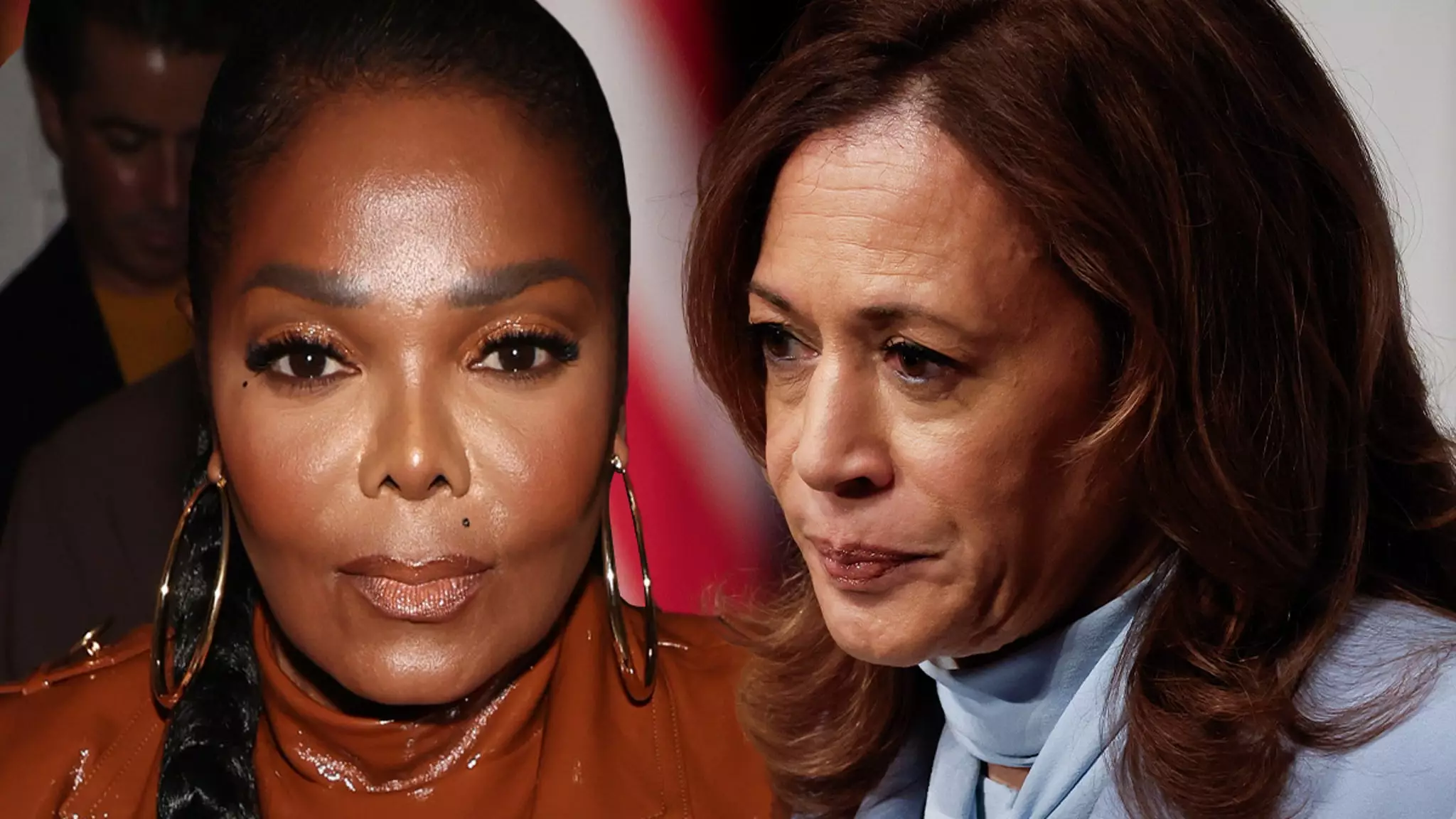The political landscape is often intertwined with celebrity opinions, and recently, Janet Jackson has found herself at the center of a contentious debate about race and identity. During an interview with The Guardian, Jackson echoed controversial sentiments originally expressed by former President Donald Trump regarding Vice President Kamala Harris’s racial identity, opening up a dialogue on the implications of such assertions in today’s socio-political climate.
In her interview, Jackson suggested that Harris might not be Black, but rather Indian, reflecting statements made by Trump during a public event. This revelation sparked immediate criticism and raised eyebrows, as it perpetuates a narrative that questions Harris’s authenticity and her identity as a Black woman. Jackson’s comment that she “heard” Harris’s father is white further complicated her argument, showcasing a potential misunderstanding of Harris’s heritage.
Harris herself has publicly identified as Black and has not only honored her Jamaican heritage through her father but also acknowledges her South Asian roots through her mother. By downplaying this complexity and instead framing it through a singular narrative, Jackson’s remarks risk oversimplifying a rich and nuanced identity. This contributes to a concerning trend where individuals, particularly those in public spheres, comment on racial identities without adequate context or factual foundation.
The backlash to Jackson’s comments has been swift. Many critics argue that such assertions defensively echo Trump’s divisive rhetoric, potentially alienating those who recognize Harris’s contributions as a crucial figure in American politics. The ramifications of these comments extend beyond Jackson herself; they reflect broader societal views on race and identity, especially relevant in an election year. The implications of claiming authenticity based solely on lineage can lead to societal fracturing, and concerns over “racial purity” have historically resulted in harmful ideologies.
Moreover, Jackson’s additional commentary regarding the anticipation of “mayhem” regardless of the election outcome further adds layers to her outlook on political discourse. Such a statement, while not unfounded given the chaotic political climate in recent elections, offers a fatalistic view that undermines the importance of democratic processes and peaceful transitions of power.
The incident serves as a reminder of the responsibility that public figures have when discussing sensitive subjects like race. As influential figures, celebrities hold the power to shape narratives and influence public opinion, which can have tangible effects on societal attitudes and political behavior. In a world that is increasingly polarized, it is crucial for discussions centered around identity to be grounded in fact and nuance.
As audiences consume these narratives, it becomes imperative to critically assess the sources and motivations behind such claims. Janet Jackson’s recent statements have ignited not only a conversation about Kamala Harris’s identity but also brought to the forefront the larger dialogue about how race is perceived and discussed in the public sphere. It is essential for such conversations to be approached with care, respect, and an understanding of the complexities that define individual identities.

